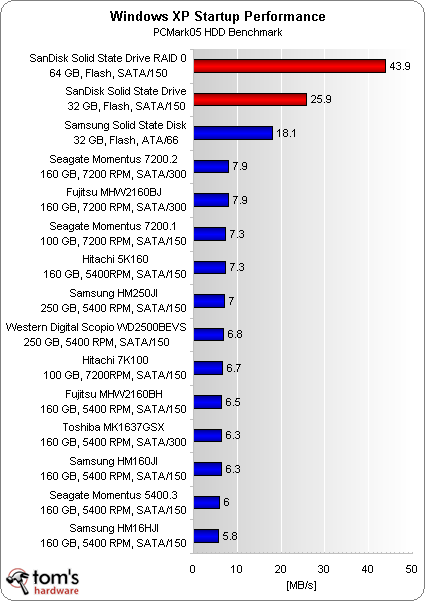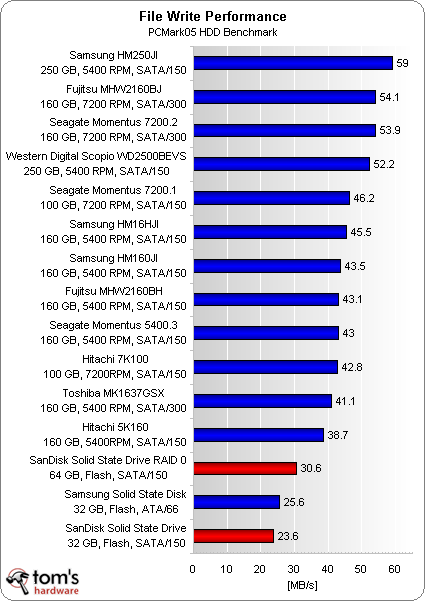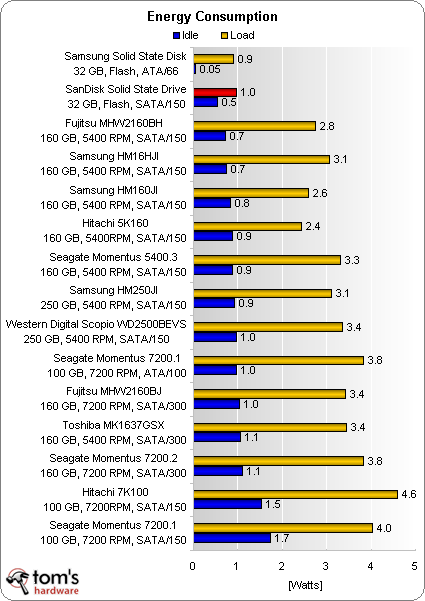Solid State Disk Drives Are Here
Application Benchmark Results
These results make up for the almost laughable I/O performance. While a conventional hard drive delivers between 6 and 8 MB/s of data when collecting data that Windows XP requests during its startup process, the SanDisk SDD 5000 delivers roughly three times that result. The result is obvious: Windows (and applications) boot noticeably faster with a flash-based drive.
Once again the SSD 5000 suffers from the flash memory's inability to quickly write into varying cells. All conventional hard drives offer better file write performance, as measured with Futuremark's PCMark05 HDD benchmark.
Energy Requirements
As we discussed above, while the SSD 5000 by SanDisk indeed is much more efficient than any other hard drive, the Serial ATA interface prevents it from reaching really low idle power requirements. Clearly there is room for improvement, as Samsung's flash SDD prototype we reviewed nine months ago showed idle power requirements of 0.05 W, which was truly amazing.
Get Tom's Hardware's best news and in-depth reviews, straight to your inbox.

Patrick Schmid was the editor-in-chief for Tom's Hardware from 2005 to 2006. He wrote numerous articles on a wide range of hardware topics, including storage, CPUs, and system builds.


